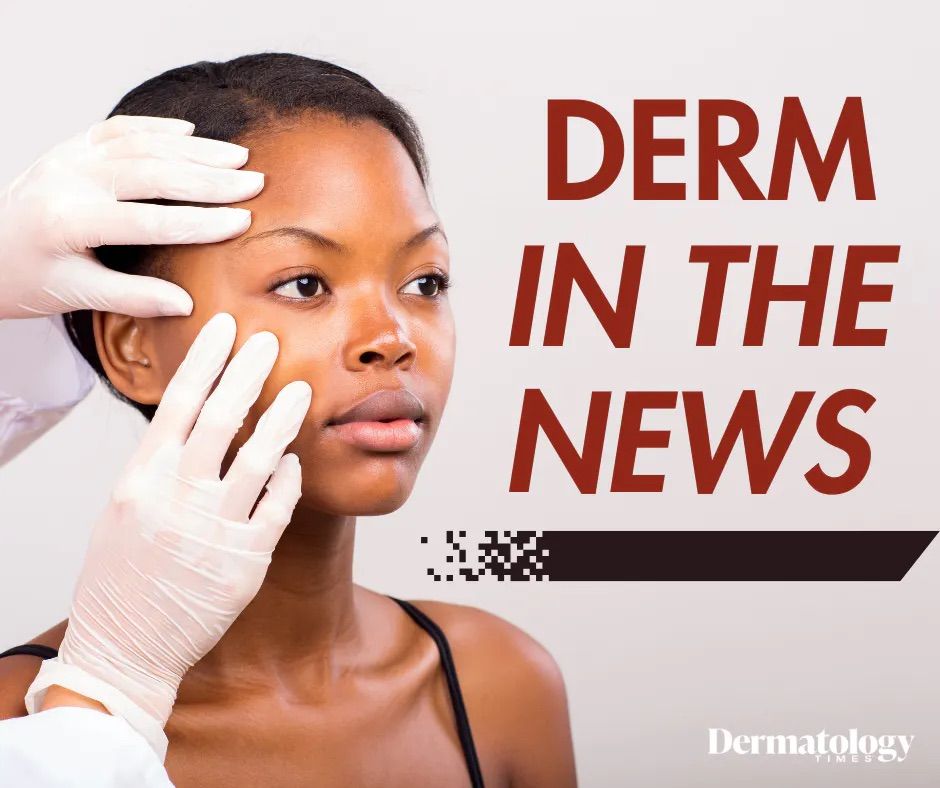Patient-Forward Rundown
Top headlines from this week to share with your patients:
News
Article
Author(s):
Keep up with the latest headlines in dermatology from the past week, including high wait times to access dermatologic care in Quebec, the rise of digital dermatology, and more.

Quebec is experiencing a significant backlog in dermatology consultations, with nearly 100,000 people on the wait-list, the longest of any medical specialty. Between April 2023 and March 2024, 93,000 consultation requests were made, with patients waiting an average of 198 days and a median of 81 days. Factors contributing to this backlog include a shortage of dermatologists—only about 200 serve a population of nearly 9 million— and a shift towards better work-life balance among doctors. Teledermatology has reduced waiting times significantly, with only 21% of cases requiring face-to-face referrals.
The rise of social media and celebrity culture has significantly increased the demand for dermatological services among the general population, particularly among Gen Z, who are now spending more on skin care than previous generations. This demand has been further facilitated by advancements in digital dermatology, which gained momentum during the COVID-19 pandemic when the use of teledermatology surged from 14.1% to over 90% among dermatologists. This shift is supported by sophisticated technologies such as AI, machine learning, and augmented reality.
Top headlines from this week to share with your patients:
Australian dermatologist Jim Muir has criticized Northern Ireland for not banning sunbeds despite their strong link to skin cancer, calling the situation "insane." In 2009, the World Health Organization classified UV exposure from sunlamps, sunbeds, and tanning booths as carcinogenic, prompting bans in countries like Brazil and Australia. Northern Ireland prohibits under-18s from using sunbeds, but Muir argues this restriction should apply to all ages. The Department of Health in Northern Ireland has no immediate plans to ban sunbeds but acknowledges the potential for future regulations as part of its Skin Cancer Prevention Strategy.
A map of the United States illustrates the annual age-adjusted rate of new melanoma cases from 2016 to 2020. Utah has the highest rate, with 40.8 new cases per 100,000 people annually, while Washington, DC has the lowest at 9.3 cases, followed by Texas with 14.1 cases. The national average stands at 22.5 cases per 100,000 people per year. The rate of new melanoma diagnoses has increased by 2% to 3% annually from 2015 to 2019. Although melanoma constitutes about 1% of skin cancer cases, it accounts for the majority of skin cancer deaths, according to the American Cancer Society (ACS). ACS estimates about 100,640 new melanoma skin cancer cases will be diagnosed in 2024.
The Joseph M. Still Burn Center at Doctors Hospital in Augusta, Georgia, has become the first in the US to implement a technology for treating burn and wound patients known as RECELL GO. RECELL GO allows for the regenerative capacity of cells to be harvested and sprayed onto wounds, a concept that originated in the 1980s. The technology was approved for use in the US in 2018 and was developed by Avita Medical, a regenerative medical company.
Have you seen any dermatology headlines this week that we may have missed? Share with us by emailing our team at DTEditor@mmhgroup.com.